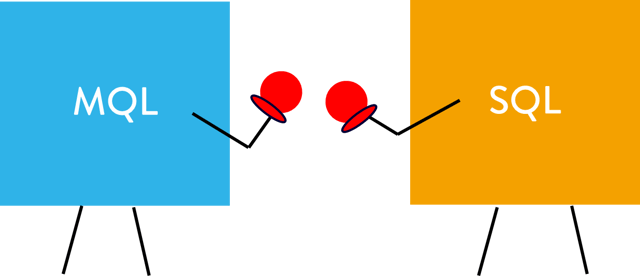
In many organisations there is often a bit of tension between marketing and sales, especially when it comes to the thorny subject of lead generation. Although both departments are ultimately leading towards the same goal, they often have different ideas on how to get there. At the crux of this is how organisations define and qualify a sales lead. Marketing will have a variety of strategies in place to deliver marketing qualified leads (MQLs) and at some stage in the process; these leads need to be handed over to sales to convert. It’s at what ‘stage’ where the disagreements can begin and this is where sales and marketing need to have realistic expectations of each others’ roles and responsibilities in the process and agree some common ground. This is why bridging the gap between MQLs and SQLs is so important.
The merry-go-round
The problem often stems from marketing and sales coming at the issue from different angles. Marketing will have a game plan they will be working to with regards to how many leads they need to generate to deliver the overall objective. Sales will have their own set of targets that they will be working to and are therefore heavily reliant on the quality of the marketing leads to help them hit their targets. Both departments may also be carrying baggage from previous performances. For example, if sales have had a particularly bad quarter then they will feel under pressure to convert as many leads as possible. If the perceptions of the leads that are passed fail to meet expectations then sales teams will become disgruntled and vent their feeling towards marketing. Conversely, marketing may feel that they’ve had a good quarter and generated a high number of leads and they will apportion blame to sales if these leads are not converted. And so the merry-go-round goes on…
In an ideal world sales would like marketing to go through the most stringent process possible before passing the sales lead to them. In other words, they would like it on a plate i.e. right profile of customer, correct contact within the organisation, appropriate industry, have the available budget and are ready to buy and they have a definite need for the product or service being offered. This is what sales would refer to as a sales qualified lead (SQL).
So why can’t marketing just qualify leads to an SQL level?
It simply wouldn’t be practical as it would take too long. Marketing have to attract as many of the right sort of prospects as possible and inevitably, some of the prospects attracted will not be the right fit. Although marketing can qualify leads to some extent, to try and get every box ticked before passing the lead to sales would be too laborious, costly and divert attention away from their marketing activity. This is why a degree of pragmatism is required and a lead scoring process needs to be agreed between sales and marketing to determine how strong a lead really is.
To sniff out the true opportunity in a sales lead takes one to one personal interaction. This can be done via email but is better done over the phone or in person. This one to one touch is typically the domain of sales and although they have the skills for it, they don’t always have the time. So what can be done about this?
Agreeing the approach
Ultimately sales and marketing need to agree the criteria for lead qualification and be mindful of each others’ roles, responsibilities, time pressures, targets etc. It may be a bit of battle to agree this criteria but it’s worth doing because the sooner you can get your sales and marketing teams on the same page, the better.
With small organisations there is often little choice but to have their sales teams follow up every MQL themselves; but if you explore the idea of having an internal team or outsourcing this stage of lead qualification to an experienced agency, this can provide significantly better return on investment.It will save both sales and marketing time and money, and also remove any potential conflict between the two. This will allow your sales teams to concentrate on the juicy leads and provide your marketing department with valuable feedback on the leads that they are generating – in other words, getting that much closer to bridging the gap between MQLs and SQLs. It’s worth thinking about….







